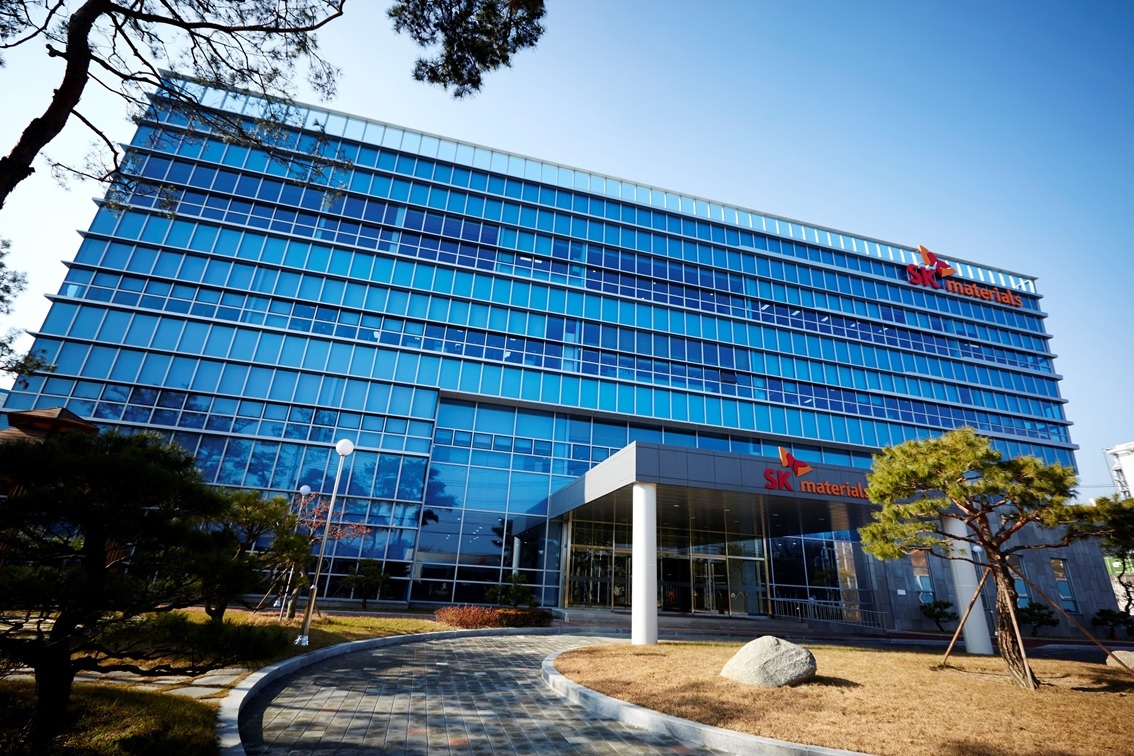SK, Group14 to establish W850b battery material plant in Korea
By Kim Byung-wookPublished : Sept. 14, 2021 - 18:02

SK Materials and Group14 Technologies will jointly establish an 850 billion won ($725.7 million) silicon anode plant in Sangju, North Gyeongsang Province, to gain foothold in the next-generation electric vehicle battery market, SK Materials said Tuesday.
The project is to be led by a joint venture set up earlier by the two in a 75:25 ratio, tentatively named SK Materials Group14.
The first factory is to break ground in October and kick off commercial operation starting next year. Including future expansion, the whole project will cost 550 billion won.
SK Materials will invest an additional 300 billion won for land purchases and construction of a factory that manufactures silane, the raw material of silicon anodes.
Anodes are the negative terminal of EV batteries. They mostly contain graphite and determine the stability of batteries. Some Korean battery manufacturers add a small amount of silicon inside them to boost performance.
However, there is a trade-off. When batteries are charged, silicon particles absorb lithium ions and expand, but sometimes fail to return to their original size. This causes batteries to swell and degrade, reducing their lifespan.
SK Materials Group14’s SCC55 silicon anodes overcame the technological issue with its unique structural designs. Instead of simply mixing silicon and graphite particles together, the firm created a sponge-like carbon where silicon particles are lodged inside the carbon pores. The carbon acts like scaffolding that helps silicon particles maintain their size.
As the design allows more silicon particles to be squeezed in without taking up the extra space, SCC55 anodes are much thinner and at the same time more powerful than typical silicon anodes, the company claims.
According to SNE Research, the demand for silicon anodes will see an average annual growth of 70 percent by 2025 and spike to 200,000 metric tons by 2030.
The project is to be led by a joint venture set up earlier by the two in a 75:25 ratio, tentatively named SK Materials Group14.
The first factory is to break ground in October and kick off commercial operation starting next year. Including future expansion, the whole project will cost 550 billion won.
SK Materials will invest an additional 300 billion won for land purchases and construction of a factory that manufactures silane, the raw material of silicon anodes.
Anodes are the negative terminal of EV batteries. They mostly contain graphite and determine the stability of batteries. Some Korean battery manufacturers add a small amount of silicon inside them to boost performance.
However, there is a trade-off. When batteries are charged, silicon particles absorb lithium ions and expand, but sometimes fail to return to their original size. This causes batteries to swell and degrade, reducing their lifespan.
SK Materials Group14’s SCC55 silicon anodes overcame the technological issue with its unique structural designs. Instead of simply mixing silicon and graphite particles together, the firm created a sponge-like carbon where silicon particles are lodged inside the carbon pores. The carbon acts like scaffolding that helps silicon particles maintain their size.
As the design allows more silicon particles to be squeezed in without taking up the extra space, SCC55 anodes are much thinner and at the same time more powerful than typical silicon anodes, the company claims.
According to SNE Research, the demand for silicon anodes will see an average annual growth of 70 percent by 2025 and spike to 200,000 metric tons by 2030.


















![[Today’s K-pop] Treasure to publish magazine for debut anniversary](http://res.heraldm.com/phpwas/restmb_idxmake.php?idx=642&simg=/content/image/2024/07/26/20240726050551_0.jpg&u=)